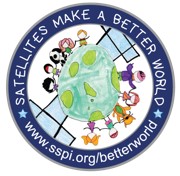In 2017, North Korea shocked the world by launching tests of two ballistic missiles able to cross the Pacific and strike the US. One just missed hitting a commercial passenger flight headed for Tokyo.
The UN Security Council slapped a severe penalty on the rogue nation: a limit on the amount of fuel and crude oil it could import. The hope was that, with no oil reserves of its own, North Korea would soon feel the pressure to change its ways.
Except it didn’t. Two years later, the country conducted no fewer than 20 missile tests. What went wrong?
Demand Meets Supply
There is high demand for black market fuel from East Asia. Price differences between nations make it profitable to buy low in one place and sell high in another – if you can do it without getting caught. But with oil traders operating in the shadows, it’s impossible to stop the trade or even slow it down.
Or is it? A British charity, the Royal United Services Institute, decided to try.
The Institute turned for help to Planet, a leading provider of satellite imagery. The Institute then worked with global security nonprofit C4ADS to review hundreds of images from Planet’s global archive. That painstaking work identified at least 100 oil deliveries that North Korea failed to report to the UN. Overall, the Institute estimated that North Korea imported four times more fuel in a single year than it should have.
Dispelling the Shadows
Planet operates about 200 satellites in low Earth orbit. Together, they take pictures and download images of the entire Earth’s landmass every day. Those images proved key to uncovering smuggling in action. They showed big tankers docked in East Asian nations where they legally bought fuel. Out at sea, the ships rendezvoused with smaller tankers and transferred the fuel to them for delivery to North Korean ports, in violation of the law.
Using Planet’s high-resolution images, the Institute was able to identify individual ships. News stories followed, bringing attention to the United Nations investigators – and North Korea found it harder and more expensive to smuggle its way to success.
Year by year, companies like Planet are dispelling the shadows where illegal activity hides. Day by day, satellites bring a bit more of the Earth into the light.
 Produced for Satellite Executive Briefing by Space & Satellite Professionals International. See more stories and videos of satellite making a better world at: www.bettersatelliteworld.com
Produced for Satellite Executive Briefing by Space & Satellite Professionals International. See more stories and videos of satellite making a better world at: www.bettersatelliteworld.com





